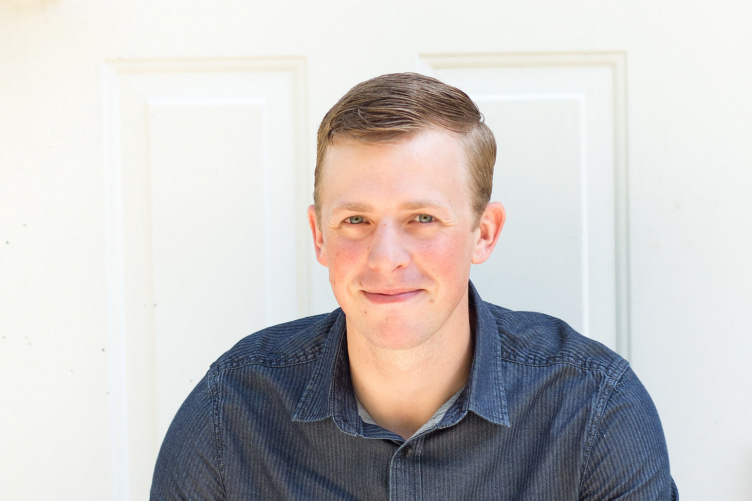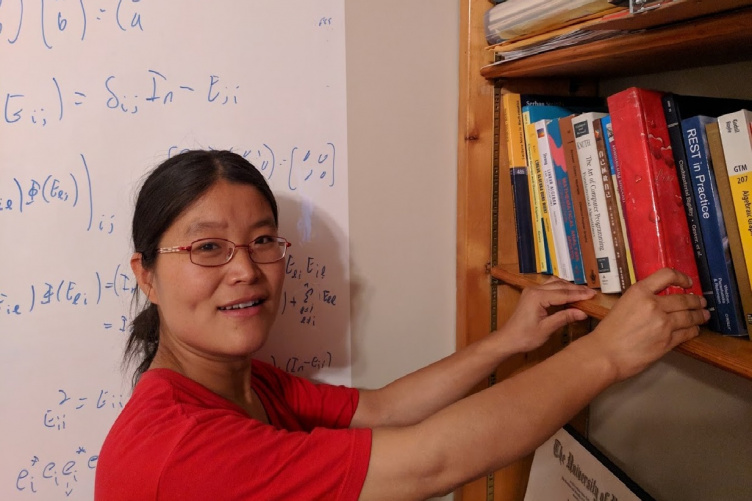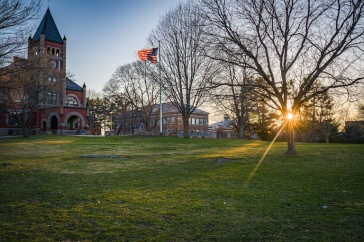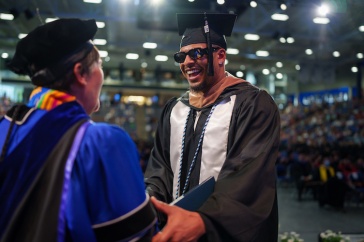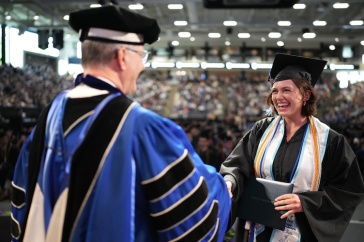Daniel J. Savage
Program/Department: Mechanical Engineering
There’s a lot of thought that goes into determining the materials something is made of.
For instance, said Ph.D. student Daniel Savage, a cell phone designer wants to know whether a phone enclosure is strong enough to keep a screen from cracking. Will the phone permanently deform when sat on? What kinds of materials will make this phone the best phone it can be?
Engineers like Savage can answer these kinds of questions via virtual testing using models that reproduce material behavior.
“The idea is that by incorporating the physics at the heart of the material behavior, we can better understand, model, and predict how materials will behave in different environments, thereby accelerating adoption of innovative materials and designs in the technology we use every day,” he said.
Savage’s research builds on a large field of material modeling and experimental characterization and can benefit not only the mobile phone industries, but also automotive, airspace and defense industries.
After UNH, he’d like to find a post-doctoral position and perhaps travel internationally. He plans to graduate in 2019.
Yusi W. Turell
Program/Department: Natural Resources & Environmental Studies
Management scholars have recently placed more emphasis on how business can be used as a ‘force for good.’ In particular, so-called social entrepreneurs use business and market forces to develop innovative, financially sustainable solutions for social or environmental problems – and then implement them on a large scale.
“I am interested in how these actors recognize and exploit opportunities for field-level change, particularly related to potential synergies and tensions between their organization-level and field-level activities," said Yusi Turell, a Ph.D. candidate and 2018 Dissertation Year Fellowship recipient. “My research has practical implications for social entrepreneurs and other actors who work across sectors to address grand challenges of society and the natural environment.”
Specifically, her research consists of an exploratory, multiple-case study examining an exemplar group of social entrepreneurs who lead market-based social enterprises and played a major role in changing public policy.
Before pursuing her Ph.D., Turell worked on Boston’s “Big Dig” project, consulted to architectural, engineering and construction firms, wrote case studies at Harvard Business School and researched complex adaptive systems at Ernst & Young’s Center for Business Innovation. She also led new initiatives and contributed to national program growth at Citizen Schools, an educational nonprofit with an innovative model for closing the income-based achievement gap, before joining UNH in 2011 as a founding executive director of a social innovation center within the Carsey Institute; this center morphed into the current Center for Social Innovation and Enterprise. She stepped down in 2016 to focus on research.
Turell plans to graduate the fall or winter of 2019, and afterward, would like to travel, research, explore opportunities inside and outside academia and teach about innovative models for sustained social change.
Wenjing Liu
Program/Department: Mathematics
The structure of finite dimensional matrices and their infinite dimensional counterparts (operators) is important in physics, chemistry, and our understanding of the structure of algebras, said Wenjing Liu, a Ph.D. student and Dissertation Fellowship recipient studying math and statistics.
Understanding this structure, she said, allows us to understand the spin of atoms and how chemical elements pair together.
Liu, originally from China, earned bachelor’s and master’s degrees at Shaanxi Normal University before attending UNH, and her research delves into the Beurling Theorem, which looks at subspaces for a special class of operators and algebras.
Liu plans to graduate this year, and afterward, would like to continue her studies in a postdoc position, and eventually become a professor.
-
Written By:
Kristen Melamed | Graduate Admissions

















































